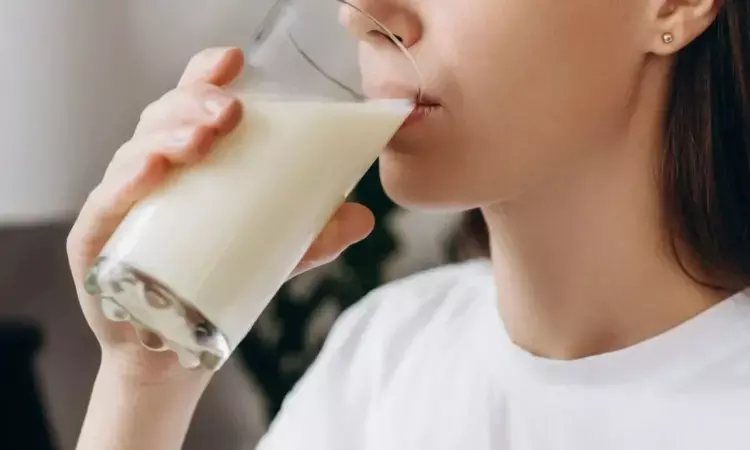- Home
- Medical news & Guidelines
- Anesthesiology
- Cardiology and CTVS
- Critical Care
- Dentistry
- Dermatology
- Diabetes and Endocrinology
- ENT
- Gastroenterology
- Medicine
- Nephrology
- Neurology
- Obstretics-Gynaecology
- Oncology
- Ophthalmology
- Orthopaedics
- Pediatrics-Neonatology
- Psychiatry
- Pulmonology
- Radiology
- Surgery
- Urology
- Laboratory Medicine
- Diet
- Nursing
- Paramedical
- Physiotherapy
- Health news
- Fact Check
- Bone Health Fact Check
- Brain Health Fact Check
- Cancer Related Fact Check
- Child Care Fact Check
- Dental and oral health fact check
- Diabetes and metabolic health fact check
- Diet and Nutrition Fact Check
- Eye and ENT Care Fact Check
- Fitness fact check
- Gut health fact check
- Heart health fact check
- Kidney health fact check
- Medical education fact check
- Men's health fact check
- Respiratory fact check
- Skin and hair care fact check
- Vaccine and Immunization fact check
- Women's health fact check
- AYUSH
- State News
- Andaman and Nicobar Islands
- Andhra Pradesh
- Arunachal Pradesh
- Assam
- Bihar
- Chandigarh
- Chattisgarh
- Dadra and Nagar Haveli
- Daman and Diu
- Delhi
- Goa
- Gujarat
- Haryana
- Himachal Pradesh
- Jammu & Kashmir
- Jharkhand
- Karnataka
- Kerala
- Ladakh
- Lakshadweep
- Madhya Pradesh
- Maharashtra
- Manipur
- Meghalaya
- Mizoram
- Nagaland
- Odisha
- Puducherry
- Punjab
- Rajasthan
- Sikkim
- Tamil Nadu
- Telangana
- Tripura
- Uttar Pradesh
- Uttrakhand
- West Bengal
- Medical Education
- Industry
Camel milk udderly good alterative to traditional dairy , suggests research

In addition to being hypoallergenic, camel milk could potentially protect the gut from harmful enzymes and create healthier digestion.
New research from Edith Cowan University (ECU) has found that camel milk contained more naturally occurring bioactive peptides when compared to its bovine counterpart.
“This is a good thing. We now know that camel milk has the potential to be hypoallergenic compared to cow’s milk, but also that it has higher potential to yield bioactive peptides which can have antimicrobial properties and anti-hypertensive properties,” PhD student Mr Manujaya Jayamanna Mohittige said.
“These bioactive peptides can selectively inhibit certain pathogens, and by doing so, create a healthy gut environment and also has the potential to decrease the risk of developing cardiovascular disease in future.”
However, Mr Mohittige noted that the potency of these bioactive peptides still needed further testing.
The research has reiterated that camel milk did not contain major milk allergen β-lactoglobulin (β-Lg), providing dairy users with β-Lg allergy a viable alternative to cow’s milk. Existing literature highlights that lactose levels in camel milk are lower compared to those in cow’s milk.
Nutritional breakdown
According to previous research when comparing beverages, cow’s milk typically contains between 85% to 87% water, with 3.8% to 5.5 % fat, 2.9% to 3.5% protein, and 4.6% lactose.
In contrast, camel milk consists of 87% to 90% water. Its protein content varies from 2.15% to 4.90%, fat ranges from 1.2% to 4.5%, and lactose levels are between 3.5% and 4.5%.
Rising popularity
Currently, around 81% of global milk production is sourced from cows, with camel milk production sitting at fifth place, behind buffaloes, goats and sheep. Camel milk only accounts for around 0.4% of current milk production globally.
However, Mr Mohittige noted that Australia’s semi-arid climate and the existing camel population – albeit somewhat feral – made for a convincing argument to increase both production and consumption.
“Camel milk is gaining global attention, in part because of environmental conditions. Arid or semi-arid areas can be challenging for traditional cattle farming, but perfect for camels,” he added.
A number of camel dairies are already exist in Australia, however, production volumes are still low. Compared to dairy cows, which can produce up to 28 litres of milk a day, camels typically produce around 5 litres a day.
Reference:
Manujaya W. Jayamanna Mohottige, Angéla Juhász, Mitchell G. Nye-Wood, Katherine A. Farquharson, Utpal Bose, Michelle L. Colgrave, Beyond nutrition: Exploring immune proteins, bioactive peptides, and allergens in cow and Arabian camel milk, Food Chemistry, https://doi.org/10.1016/j.foodchem.2024.142471.
Dr Kamal Kant Kohli-MBBS, DTCD- a chest specialist with more than 30 years of practice and a flair for writing clinical articles, Dr Kamal Kant Kohli joined Medical Dialogues as a Chief Editor of Medical News. Besides writing articles, as an editor, he proofreads and verifies all the medical content published on Medical Dialogues including those coming from journals, studies,medical conferences,guidelines etc. Email: drkohli@medicaldialogues.in. Contact no. 011-43720751


